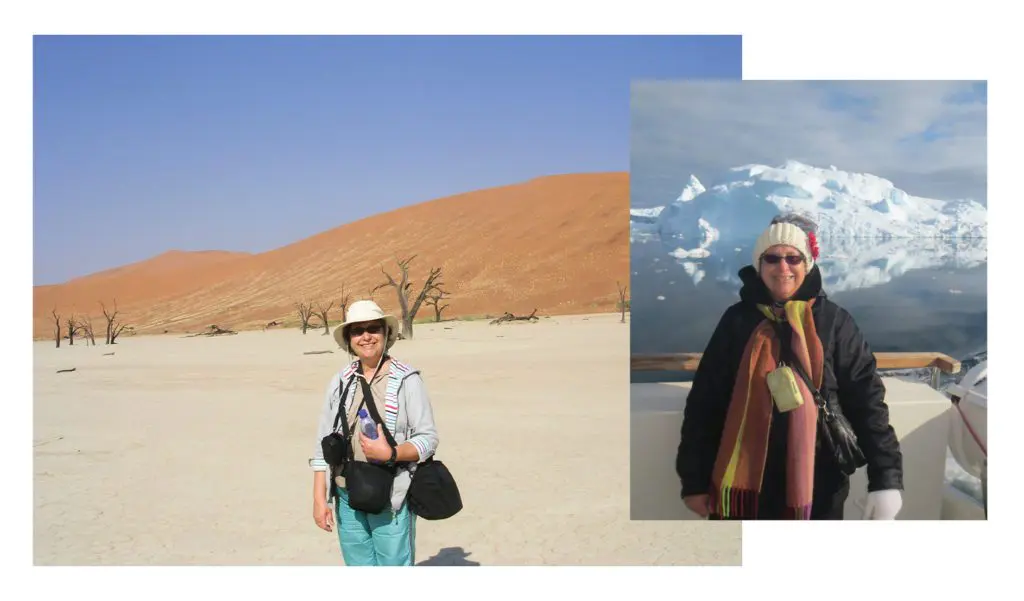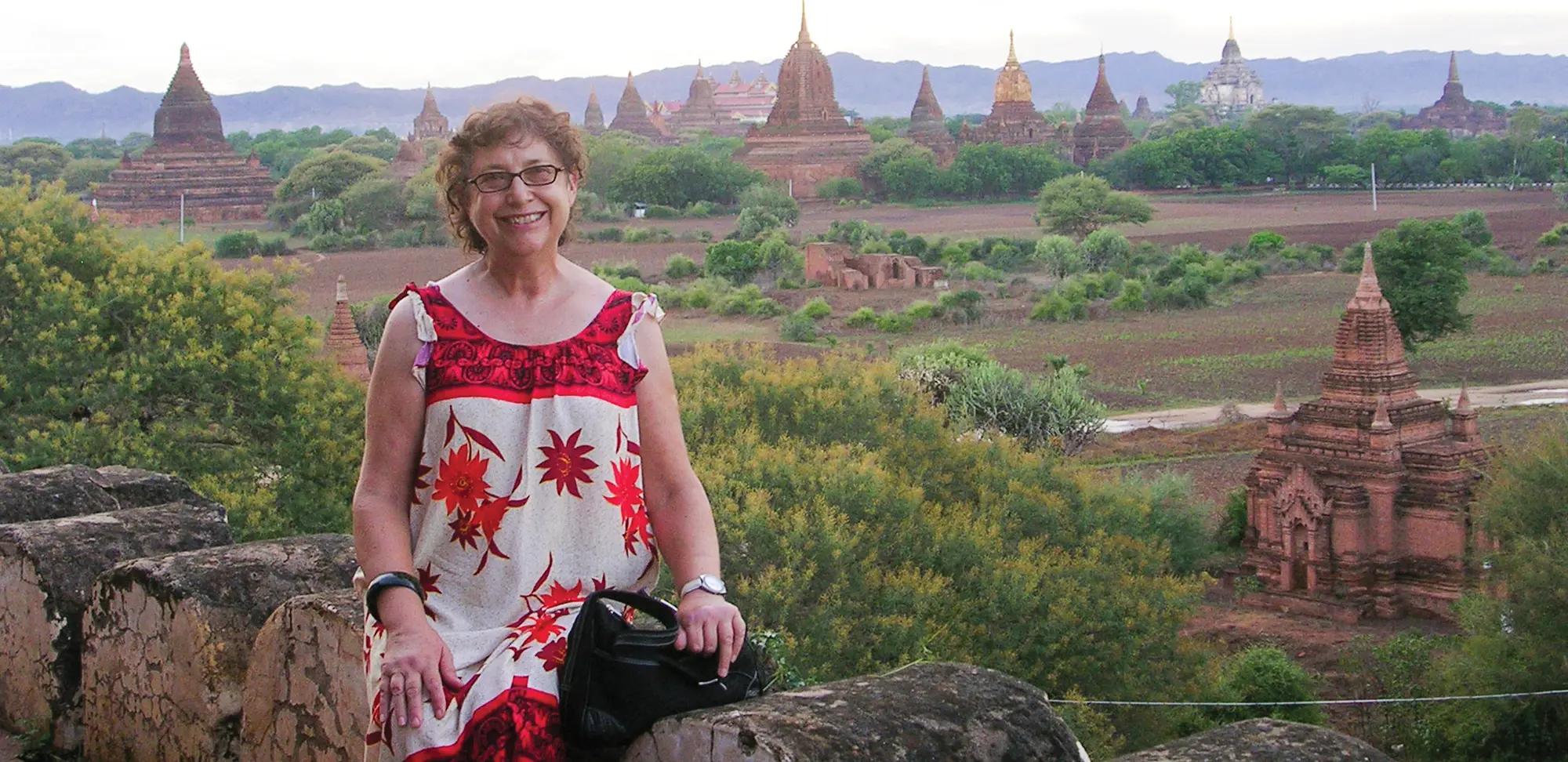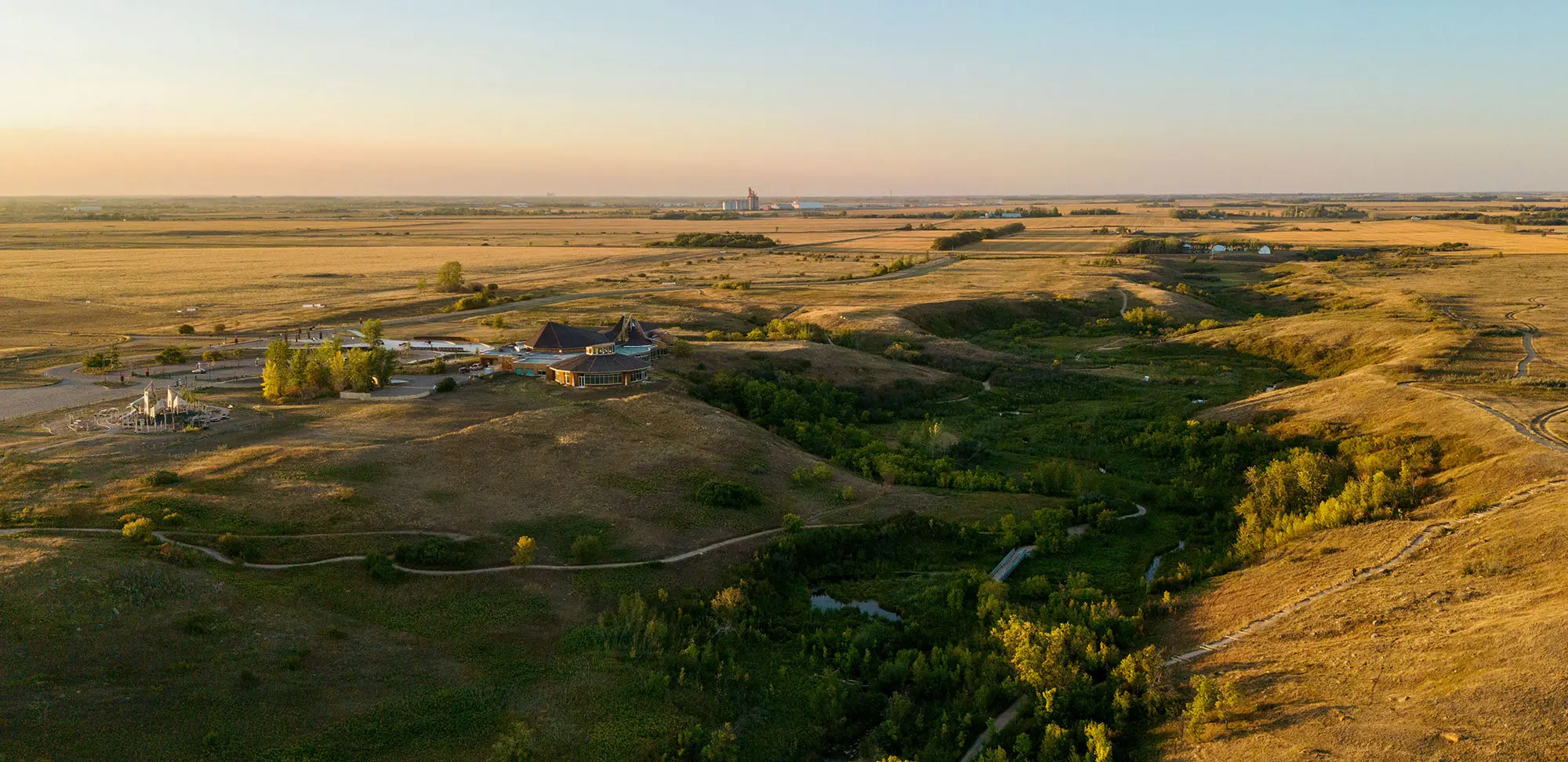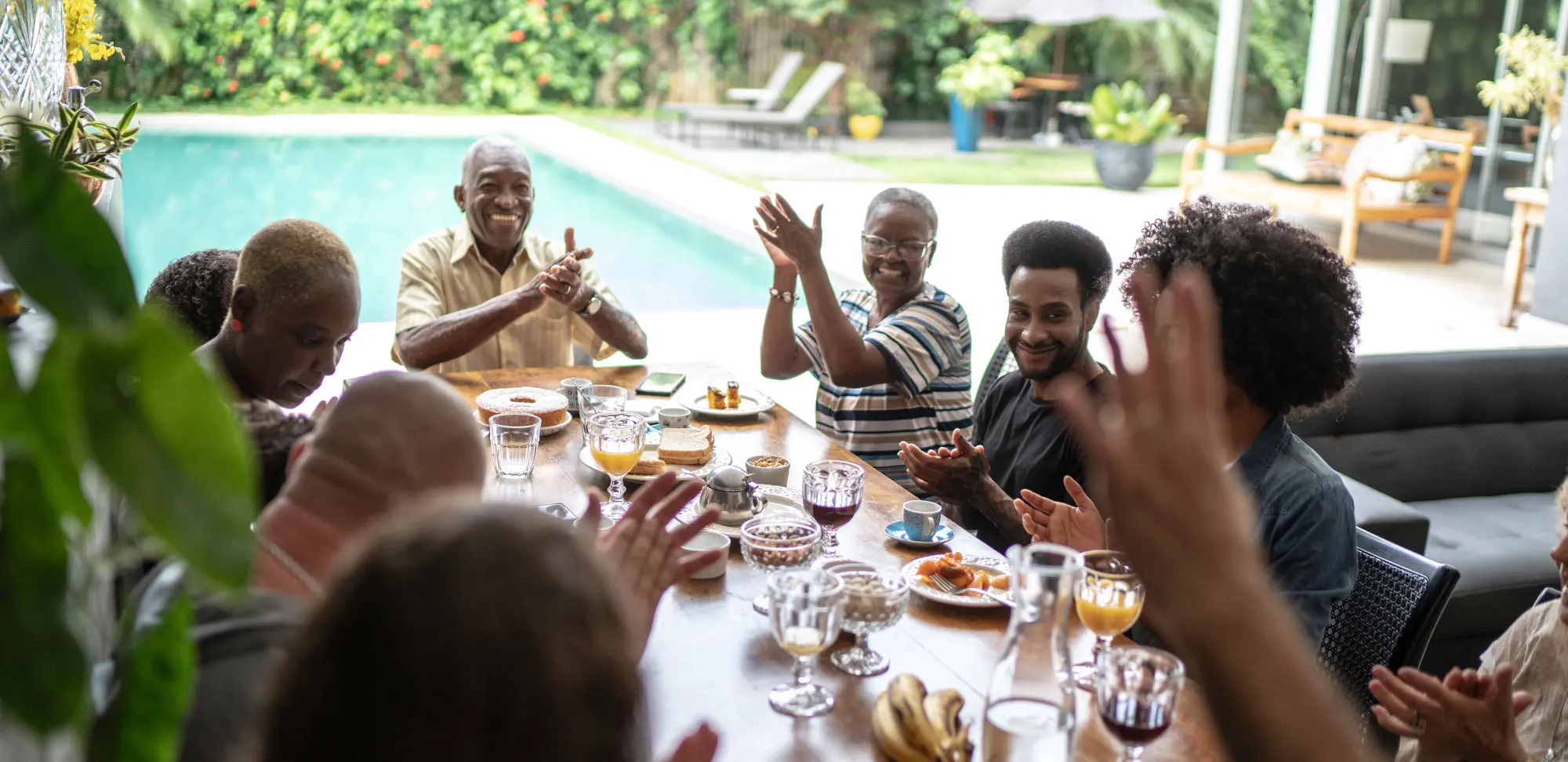I was in an accident when I was 12 and spent several years in a wheelchair. To pass the time, I started writing to penfriends in 15 different countries. I enjoyed sharing information about food, music and customs, and exchanging postcards, stamps and coins. I waited eagerly each week for mail addressed to me with colourful and interesting postage stamps; these letters were my window to the world.
A month before high school graduation, finally free from my wheelchair, and with my parents’ consent, I started planning a six-week summer trip to Europe. I contacted three of my penfriends — one lived in Germany, one in Austria and one in the Netherlands — and booked my open-jaw ticket.
And so, at 17, I went by myself on my first transatlantic Pan American Airways flight. I had lived a very sheltered life up until then and had only travelled to our family cottage two hours from our home.
Perhaps my parents agreed to the trip because they knew my childhood had been rough. Whatever the reason, it was a dream come true — and it sparked my lifelong passion for travel.
When I retired at 65, I had visited 65 countries. When students and colleagues asked about my retirement plans, they weren’t surprised when I said I intended to travel a lot and wanted to reach the goal of seeing 100 countries. I have been retired for nine years and have visited a total of 160 countries, mostly independently.
I’m often asked why I travel alone. The answer is that I really enjoy exploring in my own way, at my own pace, with the flexibility to make decisions on a whim. I have taken group tours by land and sea, mostly to countries where I feel less comfortable travelling alone or where it’s more feasible to do so on a guided group tour.
Here is what I have learned.
1. Combine teaching with travelling
I started travelling more often and for longer periods when I returned to teaching at the age of 55. Besides teaching in elementary school, I taught English as a second language (ESL) to adults in the evenings. The conversational English courses were popular with students in their 20s who were newcomers to Canada and looking for work or admission to university. I made friends with a number of my students, and when I travelled to their home countries, they gave me names of family and friends who were happy to show me around.
The two-month summer break gave me the opportunity to teach ESL in summer schools overseas, including to students in South Korea, China, Poland and Mexico. I was always the oldest teacher working alongside younger teachers, but age doesn’t matter compared to experience, personality, flexibility and a sense of humour. Teaching ESL overseas is a great way to combine work and travel, and to get to know another culture better.
The answer is that I really enjoy exploring in my own way, at my own pace, with the flexibility to make decisions on a whim.
2. Do your homework
Once I decide on a destination, I buy a travel guide and then surf the internet, checking out recent reviews of tours, accommodations and restaurants. I plan a rough itinerary for the places I want to visit, checking out bus and train timetables for short and long-distance travel, accommodations, restaurants, use of credit cards, opening and closing times for museums and costs. I always book my first and second nights’ accommodation, and I try not to arrive after dark. Sometimes late-night arrivals are unavoidable; in that case, I arrange for the hotel to send a car and driver to meet me inside the airport. Or, if that isn’t possible, I look for a taxi office inside the airport. I try to get some local currency for incidentals before leaving Canada or at the currency desk in the airport if I wasn’t able to get it beforehand.
3. Explore your destination through day tours
When I arrive in a new place, I take a hop-on-and-off sightseeing bus if one is available. This helps orient me to the layout of the city and locate the main attractions. Walking or bike tours are great for the same reasons and offer the added benefit of fitness. These tours are often rich sources of recommendations for local restaurants, events and attractions.
Day tours allow me to see out-of-the-way places of interest without the hassle of driving or taking public transportation and arranging admissions and guides. I prefer to book day tours either online before I leave or through staff at wherever I am staying when I arrive. On day tours, I meet tourists from different countries, and on many occasions, I have arranged to do other activities with someone I met on a tour. In a sense, I am never alone; I am surrounded by people who are participating in activities just like me and who are happy to chat. I have made many new friends with whom I have stayed in touch.

4. Take safety precautions
I am often asked if I feel afraid when I travel solo. Sometimes I get nervous, but I am cautious and aware of safety issues and scams, and I avoid places that pose dangers. I do not take chances or do things to jeopardize my safety, such as telling strangers I’m travelling alone, walking by myself on secluded streets or after dark, wearing attention-getting clothing or expensive jewelry, showing cameras and phones, displaying cash, or carrying a map or guidebook in my hand. I always keep my hotel’s business card in my pocket, and I let the staff know my plans, particularly if I hire a private driver to take me to see a sight. I have learned from experience to be aware of my surroundings at all times and to blend in with the crowd. I would have missed a lot of great experiences if I had let fear hold me back.
5. Stay, eat and shop local
Wherever possible, I stay in bed and breakfasts, eat in local cafés and shop in independent stores. It feels good to support local businesses and people and, at the same time, immerse myself more deeply in the local culture. Signing up for cooking classes, volunteering and attending seminars at museums, art galleries and universities all provide wonderful opportunities to meet locals, as well as contribute to and get more familiar with the community and culture.
6. Prioritize your trips according to your interests
When I started travelling, I concentrated on Europe, which I was more familiar with and where I was able to communicate in the French, Spanish and German I had learned in high school. It’s very helpful to know at least a few words and phrases in the language of the country you’re visiting. Locals appreciate your effort, and it comes in handy when you’re off the beaten path. As I became more experienced with travelling independently, I branched out to Asia, the Middle East and Africa. Then I focused on seeing the wonders of the world. After that, I chose countries based on cultural attractions, history, religion, architecture, wildlife and natural beauty.
7. Seek out memorable experiences
What have been some of my most memorable adventures? Trekking to see mountain gorillas in Uganda; hot-air ballooning in Cappadocia, Turkey; riding a dolphin in the Dominican Republic, a camel in Egypt and an elephant in India; walking among the unique wildlife in the Galapagos Islands; riding a helicopter above Victoria Falls in Africa; taking a walking safari in Botswana; riding in a small plane above the Nazca Lines in Peru and over Mount Everest; and walking along the Great Wall of China, to name a few.
Oh — and I travelled to all of those places after I turned 65.
Will I continue to travel solo? Definitely. I think it is the most gratifying way to travel — and with more than 160 countries under my belt and many more to experience, I’m not ready to stop yet!






